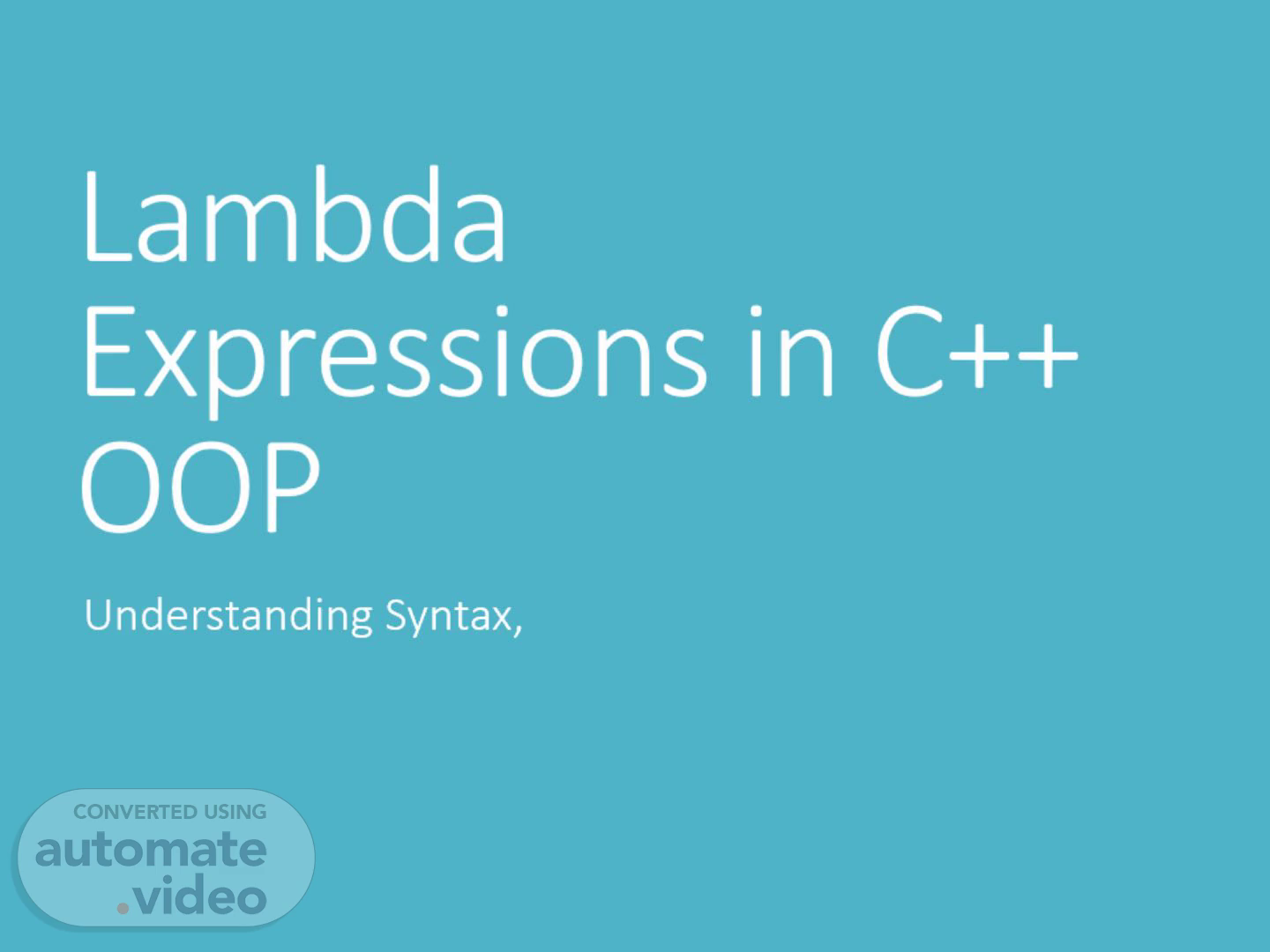Scene 1 (0s)
Lambda Expressions in C++ OOP. Understanding Syntax, Usage, and Applications.
Scene 2 (7s)
Introduction. • Lambda expressions were introduced in C++11. • They allow defining anonymous functions directly in the code. • Useful for functional programming style inside C++ OOP. • Improve readability and flexibility..
Scene 3 (19s)
Basic Syntax. • Syntax: [capture_list](parameters); Example: auto add = [](int a, int b);.
Scene 4 (28s)
Capture List. • [] → Capture nothing. • [=] → Capture all variables by value. • [&] → Capture all variables by reference. • [x, &y] → Capture specific variables (x by value, y by reference)..
Scene 5 (40s)
Using with Standard Algorithms. • Lambdas can be passed to STL algorithms. Example: std::vector<int> v =; std::for_each(v.begin(), v.end(), [](int n));.
Scene 6 (55s)
Lambdas in OOP. • Can be used as callbacks inside classes. • Useful for event handling or passing custom functions. • Capture 'this' to access class members. Example: class MyClass); } };.
Scene 7 (1m 11s)
Advanced Features. • Mutable lambdas – allow modifying captured values. • Generic lambdas – introduced in C++14 using 'auto' parameters. • Useful in templates and functional-style OOP design..
Scene 8 (1m 22s)
Conclusion. • Lambda expressions make code concise and expressive. • Enhance OOP by enabling functional-style programming. • Widely used with STL, callbacks, and event handling. • Essential feature for modern C++ developers..
